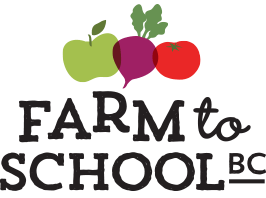Welcome to Our Project!!!
Our project is called Farm-to-School BC: Indigenous Foodscapes in Vancouver Public Schools! The broader purpose of the “Indigenous Foodscapes” Program is to bring native plants and traditional food knowledge into the minds, hearts, and belly of children and youth. Our role within this initiative is to document and consolidate information about the assets and needs of each school. Thus we will act as the bridge between community organization (Farm-to-School BC) and the school teachers in the process of building Indigenous foodscapes.
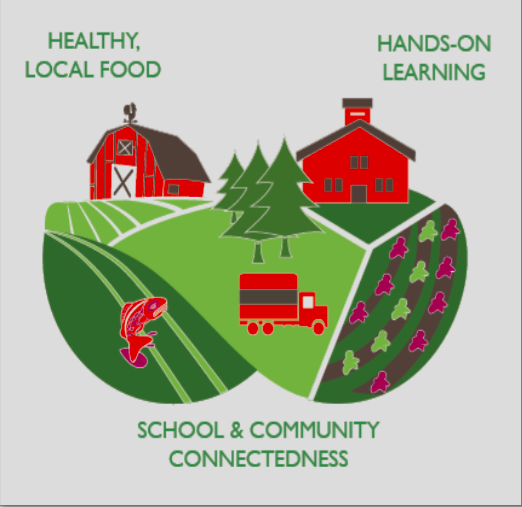
About Community Organization (Farm-to-School BC):
Farm to School BC (F2SBC) established in 2007, is an international movement aiming to bring healthy, local food into schools, and provide students with hands-on learning opportunities that foster food literacy, all while strengthening local food systems and enhancing school and community connectedness. F2SBC is a provincial umbrella organization with 3 regional hubs, including a “Vancouver Area” regional hub.
Get to Know the Team! Here We Are ->
Jiaying Xu
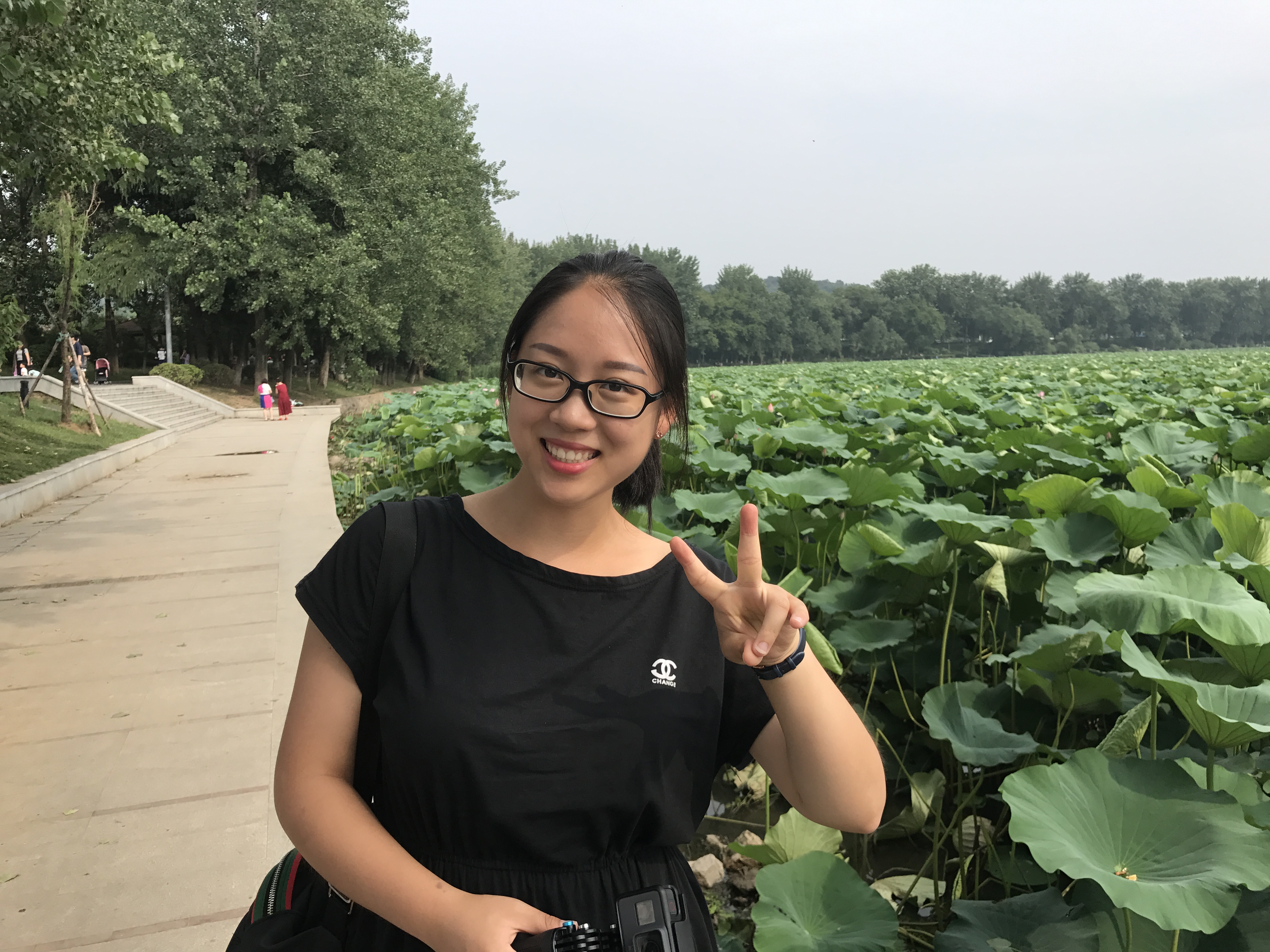
Jiaying is a third-year undergraduate student majoring Dual Degree in Food, Nutrition, and Health & Education. Two years ago, she volunteered to teach primary school students in rural part of China for a month. This experience of interacting with kids inspires her to be a good teacher in the future! In the past two years, she has volunteered to teach kindergarten kids about some basic Food & Nutrition knowledge as well as doing Nutrition workshops with Secondary school students. She loves teaching and interacting with kids because she feels rewarding by seeing children’s smiling faces in her class. She is also interested in DIY handmade things, such as paper cutting and textiles. In her free time, she enjoys traveling, hiking, and cooking.
Anna-Joy Ong
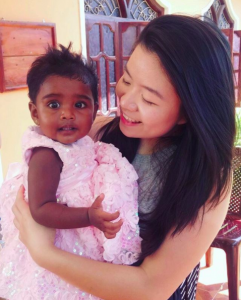
Anna-Joy is a third-year undergraduate student majoring Food, Nutrition, and Health. Apart from good food and the occasional latte, she is passionate about therapeutic horseback riding and volunteering at a barn for 4 years through which she got work with kids and adults of all ages. She has always loved traveling and learning about other cultures. She is currently exploring future career options that will allow her to interact with people who have not had access to adequate food and/or nutrition knowledge!
Odette Hobbis
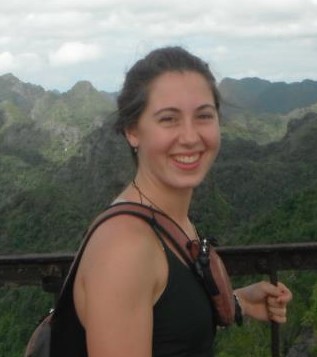
Odette is a third-year student in Applied Plant and Soil Science. She grew up on Vancouver Island and comes from a sailing eco-tourism family background where she spends most of her youth on the central coast exploring Haida Gwaii and the Great Bear Rainforest/Alaska with her family and guests on a traditional wooden sailboat. Odette has had extensive exposure to Haida culture and peoples. She values BCs traditional heritage and has an interest in First Nations cultural pride and reconciliation. As a youth, she participated in a program called Rediscovery in Gwaii Hannas which attempts to re-connect Indigenous and non-Indigenous youth to their land and native culture. Odette also has experience working as a crew member, shore guide and cook aboard her families vessel where they run youth environmental education trips for Calgary school board students ages 13-15. Upon graduating high school Odette has traveled throughout Europe and SE Asia, volunteering on farms for several months in the South of France. Odette has an educational interest in agriculture because she sees this as a field that uniquely connects the environment, plants, and people in an educational setting. She spent one year studying Agriculture at the University of Guelph in Ontario, and one semester at Kwantlen in a sustainable agriculture program before she decided to settle at UBC. In her spare time, she enjoys cooking, the outdoors, the arts, occasionally sailing and playing sports.
Carolina Duque
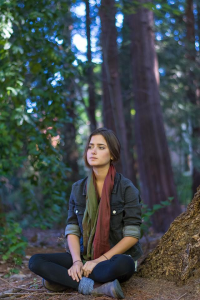
Carolina (also known as Azul) is a full-time story-teller, a forest biker, and a ukulele player. In her free time, she is a student in the faculty of Land and Food Systems majoring in Global Resource Systems. She has a big passion for theatre, math, nature, and youth.
She was born and raised in Colombia where she started a non-profit organization that worked with terminally-ill children in rural areas of the country. She has also worked with at-risk youth from slums in permaculture projects to build capacity and community.
One of her favorite places in the world is the Amazon rainforest, where she has spent time living among indigenous communities learning from plant teachers. She is intrigued by the way in which the eco-pedagogies she has learned in the Amazon can translate to the orthodox classroom to transform the way children learn and connect with mother nature. She also loves drinking wine, dancing salsa, and a good sense of humor.
James Broekhuysen
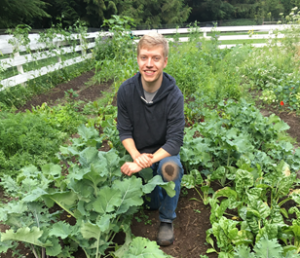
James is a 3rd-year plant and soil science major in applied biology. He is very passionate about reducing pesticide and synthetic fertilizer use on farms by using agroecological principles. He has experience working on organic farms and grows an organic garden at his family’s home in the Fraser Valley. Recently he has sparked an interest in medicinal values of plants that he plans to explore more. When James isn’t thinking about plants, he is usually running or hiking, yes, among more plants.
Group Interests:
We are interested in a variety of plants, Indigenous way of life/learning, and interacting with children. We see Indigenous plants as assets being part of a greater foodscape composed of food plants, teaching plants, medicinal plants, plants used for ceremony and celebration, and plants used as materials.
Why We Choose This Project?
- To learn more about Farm-to-School program from this experience, including how the process of Farm-to-School works and how it influences students, teachers, and farmers.
- To gain some knowledge about Indigenous plants
- To learn what we can do about indigenous uses for native plants by Lori Snyder, an expert in the field.
What are we doing?
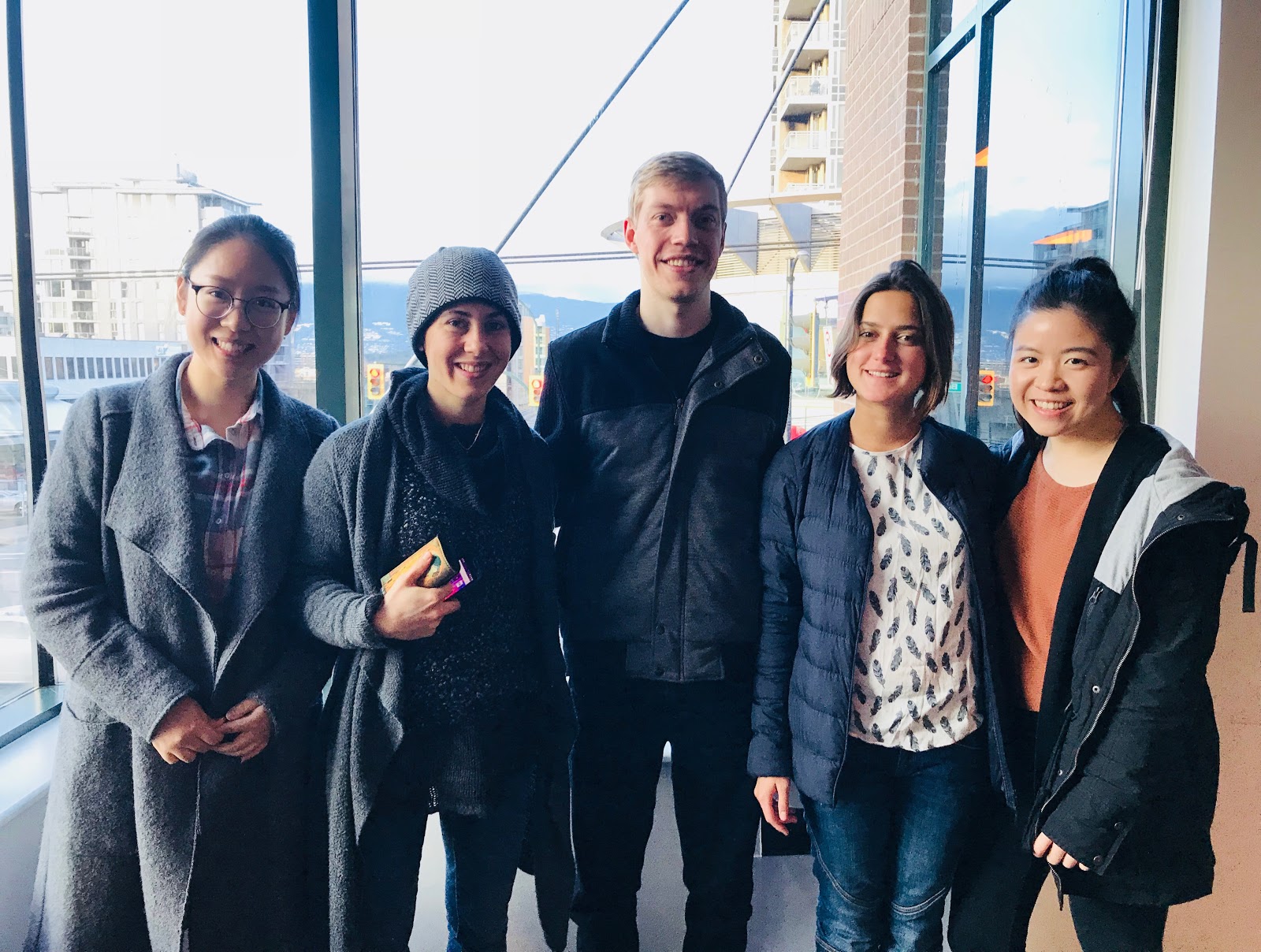
We are working with the Vancouver regional hub of Farm to School BC (F2SBC) at the school food system level. We will be joining indigenous plant expert Lori Snyder as she meets with school administrators and teachers to discuss the goals of each respective school, determine their current native plant assets at each schoolyard, and decide what needs to be added or repaired in order to create an indigenous foodscape and foster a positive learning environment for students. We will document the discussions and decisions and identify any infrastructure gaps and required materials along with other biophysical and logistical data. As being said by Ernesto Sirolli, the most effective way to support those you work with is to listen to what they actually want (TED, 2012). We will then synthesize the text, data, and media from our tours to develop a concise multimedia report for each of the two schools we will be visiting. The reports will be given to Samantha Gambling who will review the information and share with the funders, the schools, and the public at large. Our two reports will be compiled with those from other groups for Samantha to compare the school’s current and required infrastructure to determine the allocation of future funding so the schools are able to meet their goals.
First Impressions and New Ideas:
As a group, we are interested in medicinal indigenous plants, First Nations’ ways of life and interacting with children, which were our motivations for choosing this project. By meeting with Sam and Lori, who are wonderful community partners to work with, we become more excited about the school visits and learn about a variety of native plants. We have been promised a native plant tour at UBC by Lori Snyder as a thank you for our work which should be very rewarding as well.
Integrating our readings from the Principles of Asset-Based Community Development (Mathie & Cunningham, 2003) and Food Justice(LFS 350, 2017), we have assessed an opportunity for enhancing social assets and developing local and context needs in the F2SBC and UBC LFS partnership by bridging a gap between two needs:
- As was mentioned in our first Vancouver School Board meeting, many teachers involved in this project are not yet sure how they will integrate these community gardens into their learning curriculums.
- It was the feeling from our group that our collective skills and knowledge were not being fully utilized for this project (under-utilized social capital).
In order to meet the demand that VSB teachers have for creative food system teaching tools, we propose creating an open forum “knowledge bank” where students can contribute interesting facts they are learning in their courses to do with Land and Food Systems. In this way, LFS students have the opportunity to feel like their unique and individual social capital (knowledge) is being more fully utilized, while teachers will gain a diverse and interesting resource to help inspire curriculum integration.
This open forum “knowledge bank” could be accessible to all LFS students involved in this particular community project and it could be open for the duration of the time we work with the VSB. Over time, if it is successful, we may see an aggregation of ideas into categories. If there are enough categories we may be able to make a final Prezi document to help visualize these ideas and their interconnectedness in an easy to understand format for teachers (and possibly students). It would be a good idea to have a reference for each fact (and possibly a reference to the course and teacher taught at UBC). If the F2SBC project is highly successful and inspiring to future post-secondary students, we may be able to anticipate an increased interest in the LFS program at UBC among high school students. A document such as this may help them navigate and visualize a degree within LFS, if they choose to pursue one.
So…
Follow us on our journey, and learn WITH us about the Indigenous Foodscapes and how native gardens were and/or will be grown in Vancouver schools!
References:
- Farm-to-school BC logo: https://farmtoschoolbc.ca/
- The other farm to school picture was downloaded from Samantha Gambling’s Powerpoint slide on Jan.23, 2018
Gambling, S. (2018). IF Grant – Information package [PowerPoint slides].
LFS 350 (2017). Session 2 – Food Justice + Asset-Based Community Development [Lecture Notes]. Retrieved from http://lfs350.landfood.ubc.ca/session-notes/term-1-session-notes/session-2/
Mathie, A., & Cunningham, G. (2003). From clients to citizens: Asset-based community development as a strategy for community-driven development. Development in Practice, 13(5), 474-486. 10.1080/0961452032000125857
TED. (2012, Nov 26), Ernesto Sirolli: Want to help someone? Shut up and listen! [Video file]. Retrieved from https://www.youtube.com/watch?v=chXsLtHqfdM.
